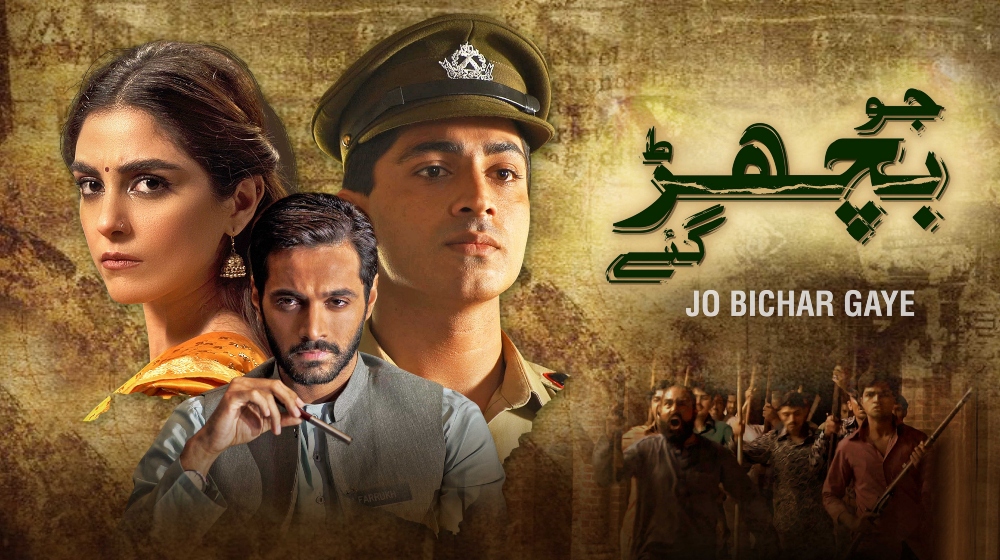Reviewing “Jo Bichar Gaye” is a daunting task, one that is not genuinely enjoyable – and this is not to say that the show itself isn’t a great watch. Rather, it’s so well-made, so intelligently written with so much attention to detail that any word, any thought or expression of praise seems to fall short. It’s also not an easy watch – it requires several views to truly grasp the message of the episode, the events in correlation with history and the true impact. It has been a long time since Pakistani television has seen the level of quality as seen in “Jo Bichar Gaye” and this is high praise. The separation of East and West Pakistan is a bitter moment in Pakistan’s history, one where East Pakistanis were certainly the victims, but West Pakistanis also suffered. This is a partition that has left wounds on both sides, wounds that have been left alone until now, remaining untouched. Directed by Haissam Hussain and written by Ali Moeen, “Jo Bichar Gaye” stars Wahaj Ali, Talha Chahour, Maya Ali, Nadia Jamil, Adnan Jaffar, Fazal Hussain and many others in prominent roles.
Episode 10 depicts tragedy in different ways. First, we see much of the focus on the army and their decision to fight back. Unfortunately, through this entire ordeal, what we come to realize is just how weak the army has become. They are in a frightfully fragile position, one where they are much weaker than the opposition. Despite putting on a fight, the army is inching near a point of loss. In this episode, we witness Captain Salahuddin (Rana Majid) and the union leader (played by Fahad Hashmi) face off in a fight and chase that leaves viewers on edge, a moment which ultimately leads to Captain Salahuddin’s death – but he does not go down without a fight. Rana Majid has been a pleasure to watch on screen, playing his role with conviction. Fahad Hashmi has played a real live-wire of a character, lacking education, but full of passion for his cause – a cause in which he has been led astray. Both these men have done a commendable job. Captain Farrukh (Talha Chahour) is also seen making his way through this war zone, seen in an eerie moment running through the eerily empty army cantonment. It’s Farrukh who has always seen this scenario set to unfold, always wondering how this situation has gotten to this point from the moment he arrived – and now the circumstances are even worse than he could have imagined. Talha Chahour is wonderful, as always.
On the other end, while most of the episode focuses on the army, one heartbreaking moment depicts exactly the loss that both sides felt – the loss of innocent life. While Rumi (Wahaj Ali) struggles to find his cousin Haroon (Fazal Hussain) amidst chaos within university walls, the audience fears the outcome for these cousins – until they are reunited. We breathe a sigh of relief for a few moments as Rumi and Haroon hug, the two running to safety before Haroon is shot. As an audience, the heart stops momentarily as Rumi screams, his pain reverbing within us. Wahaj Ali and Fazal Hussain both give outstanding performances here, shaking us from within. This is the kind of loss many experienced during this time and it’s these sequences that drive that point home and allow us to truly “feel” it.
Haissam Hussain has masterfully crafted this episode, taking the audience between the tension of Rumi’s search back to the action sequences focused on Farrukh and Salahuddin. There isn’t a calm, quiet moment within this episode as it propels the story forward and drives home the point that there isn’t a “safe” character within this story. “Jo Bichar Gaye” is a testament to how Pakistani television can be riveting and our artists are truly capable of delivering projects of an international level.
